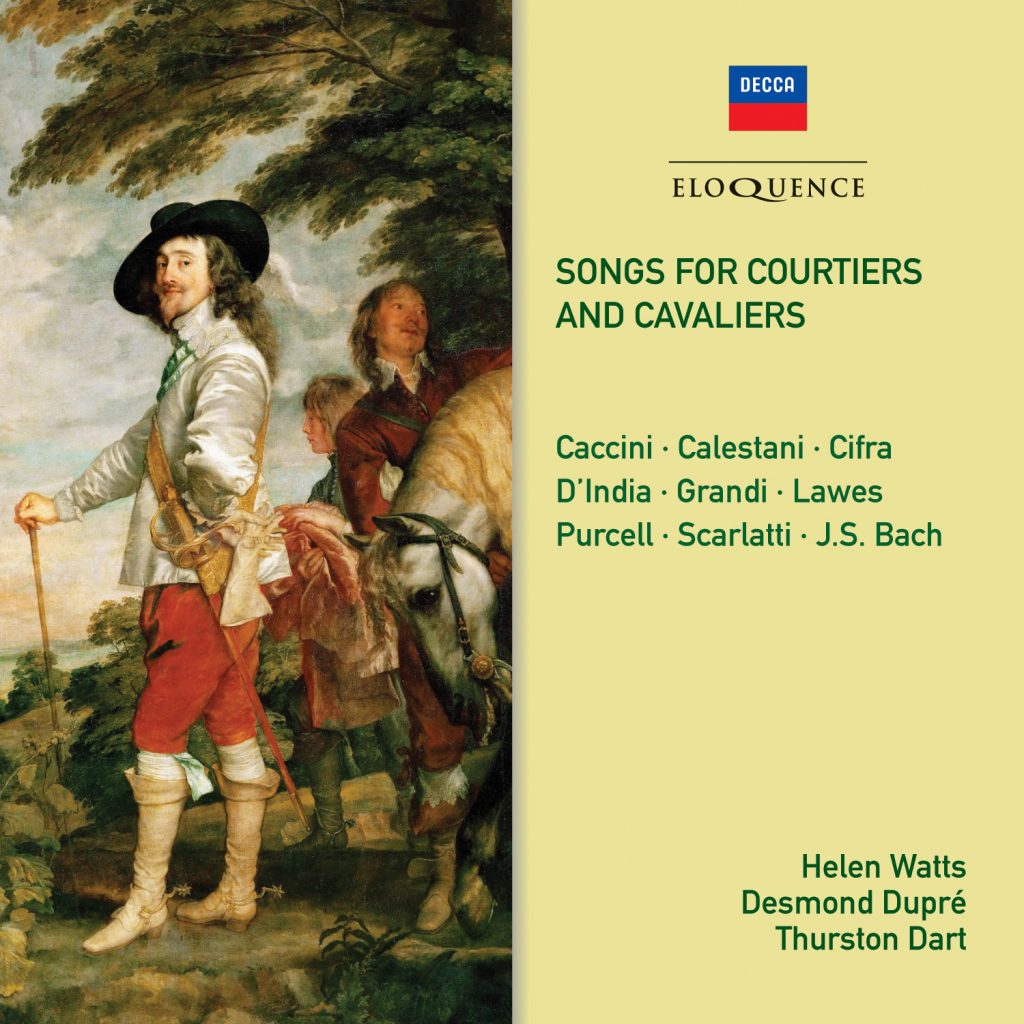Three L’Oiseau-Lyre LPs celebrating the art of a much-loved contralto, newly remastered and compiled together for the first time, including material new to CD.
The history of British contraltos on record, extends beyond Kathleen Ferrier to Constance Shacklock and before her Dame Clara Butt but their select number was joined in the 1950s by Helen Watts: ‘An extraordinary contralto,’ in the words of her modern counterpart, Nathalie Stützmann.
Having left her Welsh home and graduated from the Royal Academy of Music, she quickly established herself as Ferrier’s successor on the oratorio platform with memorable performances of Bach and Handel under Sir Malcolm Sargent and Sir Adrian Boult. At the same time she began making records for L’Oiseau-Lyre, in complete and pioneering accounts of ‘Semele’ and ‘Sosarme’ both reissued by Eloquence.
Louise Hanson-Dyer, the label’s founder, patroness and animating spirit, was sufficiently impressed at that stage to engage Watts for a solo disc which duly appeared in 1957 under the fanciful title of ‘Songs for Courtiers and Cavaliers’. From the opening bars of Caccini’s ‘Dolcissimo sospiro’ it is evident that Dyer’s faith in her young contralto-discovery was well-founded with projection combining warmth and strength in equal and winning measure with the kind of unforced excellence of diction that had already made her a sought-after fixture on the British oratorio circuit: ‘a beautiful record,’ as Gramophone’s Alec Robertson remarked.
The success of ‘Courtiers and Cavaliers’ then led to an album of songs by Purcell and Scarlatti, made in July 1957,and Bach cantatas for alto, in April 1958. All three albums were shaped by the sensitive and scholarly artistic direction of Thurston Dart and they mixed well-loved with little-known repertoire. Thirteen songs by Henry Lawes introduced many listeners to one of seventeenth-century England’s most original voices and Watts’s beautifully modulated accounts of ‘If music be the food of love’ and ‘Widerstehe doch der Sünde’ retain their lustre even in our historically informed times.
CD 1
GIULIO CACCINI: Dolcissimo sospiro
CALESTANI:
Damigella tuttabella
Folgorate
CIFRA: In quel gelato core
SIGISMONDO D’INDIA:
Infelice Didone
Torna il sereno zeffiro
ALESSANDRO GRANDI: Vientene, o mia fedel
HENRY LAWES:
A Complaint against Cupid
No Constancy in Man
An Eccho*
Tavola – In quel gelato core
Parting
Dissuasion from Presumption
Suffrance
Hymn to God the Father*
Hymn to God the Son*
Hymn to God the Holy Ghost*
Among Rosebuds
A Lady to a young Courtier
I prithee send me back my heart
Thurston Dart, harpsichord & chamber organ*
HENRY PURCELL Music for a while
On the brow of Richmond Hill
From rosy bowers
They tell us that your mighty powers
The Fatal Hour
Corinna
If music be the food of love (first setting)
If music be the food of love (second setting)
CD 2
ALESSANDRO SCARLATTI
Il rossignuolo se scioglie il volo
Clori vezzosa e bella
Desmond Dupré, viola da gamba
Thurston Dart, harpsichord
JOHANN SEBASTIAN BACH
Cantata BWV 54 ‘Widerstehe doch der Sünde’
Aria: Erbarme dich (Matthäus-Passion, BWV 244)
Schlage doch, gewünschte Stunde (Hoffman, attrib. J.S. Bach)
Bekennen will ich seinen Namen (Stölzel, attrib. J.S. Bach)
Philomusica of London
Thurston Dart
Helen Watts, contralto
FIRST INTERNATIONAL CD RELEASE ON DECCA
Recordings: London, UK, June 1956 (Songs for Courtiers and Cavaliers); Decca Studios, West Hampstead, London, UK, 7 July 1957 (Purcell, Scarlatti); London, UK, April 1958 (Bach)
Original L’Oiseau-Lyre LP Releases: OL 50128 (Songs for Courtiers and Cavaliers); OL 50173 (Purcell, Scarlatti); SOL 60003 (Bach)
Remastering Engineer: Chris Bernauer
‘I cannot recall having heard any better Bach contralto … [Her ‘Erbarme dich’] is one of the finest I have heard … These are first-class players … most sensitively led by Thurston Dart … The recording is nothing short of superb.’ Stereo Review, February 1960
‘A voice of attractive quality, accurate in pitch, capable of spinning out long phrases and even of that rare thing among singers today, a real trill … In Cantata 200 Miss Watts has no competition worth mentioning. The recording is very good.’ High Fidelity, March 1960
‘Helen Watts was in excellent voice, and her firm contralto quality is highly suitable for music of this kind … Buy it.’ Gramophone, May 1972 (Songs for Courtiers and Cavaliers)

